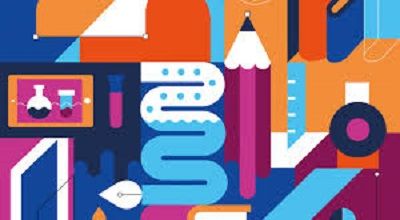Writing During the Exploration Phase of a Science Lesson
Writing during the Exploration Phase of a Science Lesson: The exploration phase of a science lesson is a critical period where students engage actively with the material, investigate concepts, and gather data through hands-on activities. Incorporating writing opportunities during this phase can enhance understanding, foster critical thinking, and support the development of scientific literacy. Here are various ways to integrate writing into the exploration phase of a science lesson.
1. Observational Journals
Detailed Observations
Encouraging students to maintain observational journals helps them record detailed notes on their experiments or observations. This practice promotes meticulous attention to detail, an essential skill in scientific inquiry. Students can describe what they see, note any changes over time, and make initial interpretations of their observations.
Illustrations and Diagrams
Including illustrations and diagrams in their journals allows students to visually document their observations. They can label parts of their drawings, which aids in reinforcing vocabulary and understanding of the scientific concepts being studied.
2. Hypothesis Formation and Reflection
Stating Hypotheses
Before conducting experiments, students can write down their hypotheses. This process involves predicting the outcomes based on prior knowledge and understanding of the scientific principles involved. Writing hypotheses helps clarify their thoughts and prepares them for the investigation.
Reflecting on Hypotheses
After the experiment, students can reflect on their initial hypotheses. They can write about whether their predictions were accurate, what they learned from the results, and how their understanding has evolved. This reflection encourages critical thinking and connects practical experiences with theoretical knowledge.
3. Data Collection and Analysis
Recording Data
Writing is essential for recording data accurately during experiments. Students can use tables, charts, and graphs to organize their findings systematically. This practice helps in visualizing data and identifying patterns or anomalies.
Analyzing Data
Students can write brief analyses of their data, discussing what the numbers indicate and drawing preliminary conclusions. This activity enhances their ability to interpret data and understand its significance in the context of the experiment.
4. Interactive Science Notebooks
Structured Entries
Interactive science notebooks are a versatile tool that combines various writing activities. These notebooks can include sections for observations, hypotheses, data collection, analysis, and reflections. The structured format helps students organize their thoughts and keep a comprehensive record of their scientific exploration.
Creative Elements
In addition to structured entries, students can add creative elements such as mind maps, concept maps, or even poems and stories related to the scientific concepts they are exploring. These creative tasks can make learning more engaging and help students process information in diverse ways.
5. Group Collaboration and Peer Review
Collaborative Writing
During group activities, students can collaborate on writing tasks. They can co-write observation notes, data analyses, and conclusions. Collaborative writing encourages communication, teamwork, and the sharing of diverse perspectives.
Peer Review
Incorporating peer review sessions allows students to critique each other’s work constructively. They can provide feedback on observational accuracy, data interpretation, and clarity of written explanations. This process helps improve writing quality and fosters a collaborative learning environment.
6. Questioning and Inquiry
Formulating Questions
Writing down questions that arise during the exploration phase encourages a deeper inquiry. Students can record their questions about the experiment, the phenomena observed, or the underlying scientific principles. This practice promotes curiosity and a desire to seek further understanding.
Investigative Reports
Students can be tasked with writing short investigative reports based on their questions. These reports can outline the problem, describe the investigation, present data, and offer conclusions. Writing investigative reports helps students structure their inquiry and communicate their findings effectively.
7. Integrating Technology
Digital Notebooks and Blogs
Using digital notebooks or blogs can provide an interactive platform for students to record and share their exploration activities. These digital tools offer multimedia integration, allowing students to include photos, videos, and hyperlinks to relevant resources. Blogging can also provide an audience for their work, enhancing motivation and engagement.
Data Analysis Tools
Incorporating technology for data analysis, such as spreadsheets and specialized software, allows students to perform more sophisticated analyses and present their findings visually. Writing about their use of these tools and the results obtained integrates technological literacy with scientific investigation.
8. Cross-Disciplinary Writing
Connecting with Literacy
Integrating science with language arts can reinforce both subjects. Students can write narratives or essays that incorporate scientific concepts they are exploring. For example, writing a story from the perspective of a molecule undergoing a chemical reaction can make abstract concepts more relatable and memorable.
Historical and Societal Context
Writing about the historical development of a scientific concept or its societal implications can provide a broader context for the exploration. Students can research and write about how scientific discoveries have impacted society or how societal needs have driven scientific advancements.
9. Personal Reflection and Metacognition
Reflective Journals
Encouraging students to keep reflective journals helps them think about their learning processes and personal growth. They can write about what they found challenging, how they overcame obstacles, and what strategies were most effective in their exploration. This metacognitive practice supports self-regulated learning and continuous improvement.
Goal Setting and Progress Tracking
Writing about their goals for the exploration phase and tracking their progress toward these goals can help students stay focused and motivated. They can reflect on their achievements and identify areas for further development, fostering a growth mindset.
Please visit Here: Students Guide
Conclusion
Integrating writing into the exploration phase of a science lesson offers numerous benefits. It enhances observational skills, promotes critical thinking, supports data analysis, encourages collaboration, and fosters a deeper understanding of scientific concepts. By incorporating various writing opportunities, educators can create a rich and engaging learning environment that supports students in developing both their scientific and literacy skills.
